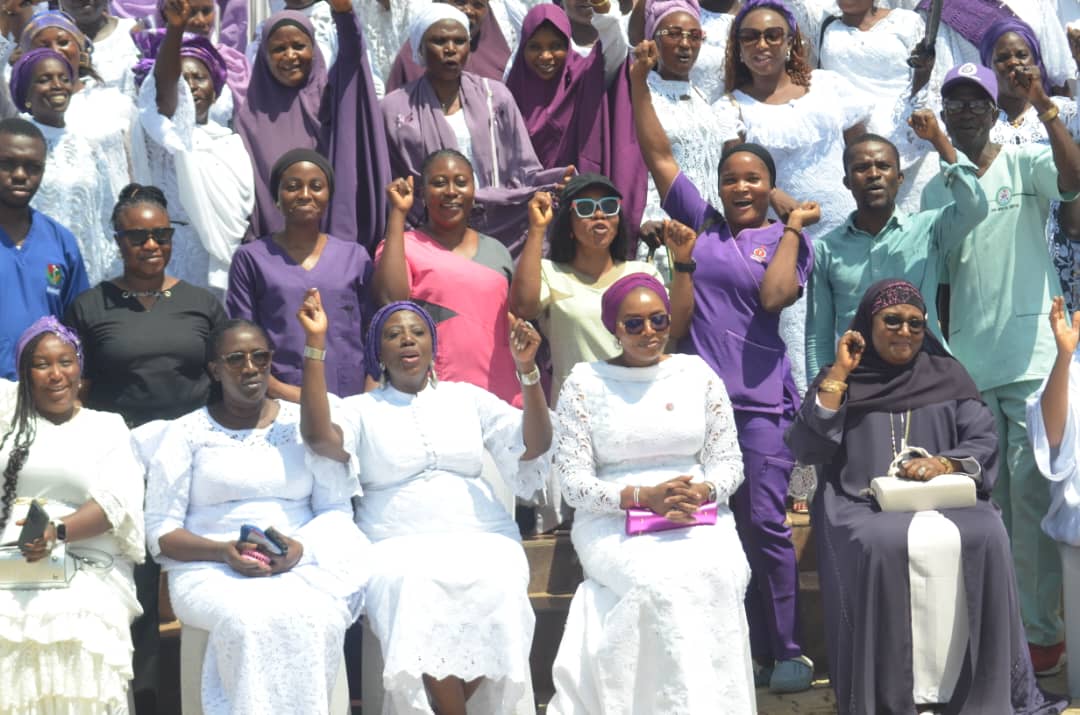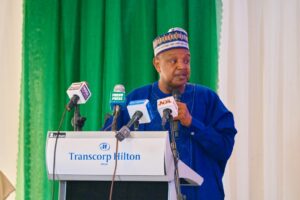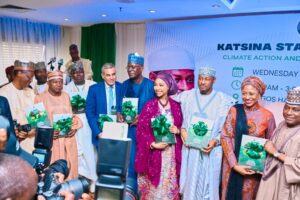NISO urges collective effort for resilient electricity sector
By Nana Hauwa Musa
Mr Abdu Mohammed, the Managing Director of the Nigerian Independent System Operator (NISO), has urged collective commitment towards building a resilient, sustainable, and fair electricity sector.
Mohammed, also the Chief Executive Officer (CEO) of NISO, said this at a stakeholder’s engagement with NISO Management on Tarriff Adjusment for customers in Enugu State on Wednesday in Abuja.
“We are meeting today in light of the recent order issued by the Enugu State Electricity Regulatory Commission revising the electricity tariff within the state.
“This development, while within the remit of state-level regulatory authority under the Electricity Act 2023 (as amended), has naturally drawn significant attention from different quarters of our industry.
“Notably, we received communication from the Enugu Electricity Distribution Company indicating that in reaction to the tariff adjustment, they initiated curtailment of power supply to the state by up to 50 per cent,” he said.
Mohammed said such measure if implemented, could have serious operational implications, particularly at the TCN–DisCo interfaces where power transfer capacity Service Level Agreements (SLA) were managed.
According to him, it has also prompted necessary questions about how such decisions interact with the operations, dispatch, commercial arrangements, and financial equilibrium of the Nigerian electricity supply industry as a whole.
“Our role in convening this discussion was grounded in both our market administration and system operations mandated through the instrumentalities of the Electricity Act 2023, the market rules and the grid code.
“Some of the grid code empowers the market operator to administer the wholesale electricity market, ensure compliance with market rules, and uphold contractual obligations.
“It mandates us to safeguard the financial integrity and orderly operation of the market, requires us to convene consultations when any matter arises that can materially affect market operation or settlement and assigns NISO responsibility for monitoring participants’ compliance with operational obligations.
“This includes dispatch instructions, system reliability, and service level agreements on power transfer capacity at TCN–Disco interfaces,” he said.
Mohammed said NISO was responsible for both commercial balance in the market and also for ensuring technical stability and operational compliance, both of which may be affected by the current situation.
He said the intervention meeting was to ensure that no action disrupted the Nigerian electricity market stability, the integrity of contracts, or operational obligations that guaranteed reliable supply.
“Let me be clear from the outset, NISO approach this discussion with neutrality, respect, and an open mind, we are not here to question the authority of the regulator or the operators.
“We fully recognise the statutory powers of the Enugu State Electricity Regulatory Commission to regulate activities within its jurisdiction.
“We equally acknowledge the licence and operational responsibilities of the Enugu Electricity Distribution Company in serving its customers,” Mohammed said.
He said that NISO had a distinct statutory role as the administrator of the Nigerian wholesale electricity market and a quasi-regulator of market operations.
“Our mandate obliges us to safeguard the integrity of the market settlement framework, ensure contractual obligations are respected, and maintain the delicate balance.
“That allows every participant from generators to distributors, from regulators to consumers to operate in a financially sustainable and technically reliable environment.
“Our objective today is to understand the facts, assumptions, and considerations behind this tariff adjustment, to examine its potential impact on the wider market.
“Also on existing contractual frameworks, and to explore together how we can harmonise state-level regulatory innovation with the commercial discipline and stability required in the wholesale electricity market.
“We believe that fair electricity prices, sustainable business operations, and a stable electricity market are not mutually exclusive goals, they are interdependent,” Mohammed said.
He said that achieving all the three required dialogue, transparency, and coordination among all relevant institutions.
“I am confident that with the depth of expertise gathered here, our deliberations today will be constructive, respectful, and solutions-oriented.
“At the end of this engagement, we should have a clearer shared understanding and resolutions with pathway that aligns both state-specific priorities and national market sustainability,” the managing director said. (NAN)
Edited by Ese E. Ekama-Williams






 Malam Balarabe Lawal, Minister of Environment, noted that the climate crisis is no longer a distant threat.
Malam Balarabe Lawal, Minister of Environment, noted that the climate crisis is no longer a distant threat. Ms Amina Mohammed, Deputy Secretary-General of the UN, in her keynote address, pledged to support the state in its green economy initiatives.
Ms Amina Mohammed, Deputy Secretary-General of the UN, in her keynote address, pledged to support the state in its green economy initiatives.